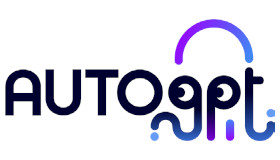Toran Bruce Richards’s background in game development led to his realisation of AI’s potential impact on humanity, inspiring the creation of AutoGPT, an open source AI project. AutoGPT functions as an AI agent, capable of performing tasks and potentially transforming various industries. Its popularity, with 156,000 GitHub stars and numerous forks, demonstrates its broad appeal and collaborative potential.
The decision to make AutoGPT open source stemmed from a desire to democratise access to powerful AI technology and avoid potential corporate monopolisation. Despite receiving US investment, the company remains registered in the UK, emphasising its commitment to openness and collaboration. The future of AutoGPT holds promise for revolutionising daily digital tasks and fostering social mobility for aspiring individuals worldwide.
Fireside Chat: Toran Bruce Richards, Founder of AutoGPT
1. What is your personal background and how did you come to work in Al?
My mission in life is to help see humanity thrive. From a young age I could clearly see that the two paths to having the largest hand in this mission were Artificial Intelligence, and space.
I have a deep fascination with space and our place within it. When I was deciding what to study in University, I was initially going for Astrophysics, but noticed a post from SpaceX stating that if you love Physics and Computers, and want to work in the space industry, do not study Soft- ware Engineering, but rather Games Development! Initially this surprised me, but the reason is that Games, rather than traditional programming, is deeply reliant on complex mathematics for computer graphics, and physics for simulation of virtual worlds.
I pivoted my life on this sentence and studied games development.
At university I went from knowing nothing about programming, way out of my depth, to a deep passion for building things, which naturally led to me spending all my free time doing it.
Out of university I ran a small business bringing video game technology to non-game indus- tries. I noticed that at the time, traditional businesses didn’t take game technology seriously, this didn’t realise how far ahead it was in many ways. This enabled us to impress clients such as governmental ecological centres and defence contractors with real-time, high-fidelity sim- ulation and visualisation. Whilst this was at times fulfilling, and I enjoyed the impact our work had on people, I wasn’t having the global impact that my mission demanded. It was around this time that OpenAI came out with their Davinci Large Language Model, and I realised that the AI revolution was about to happen.
I always knew that when it came, AI would be the single most important technology that hu- manity has ever seen. The capacity for impact is immeasurable, and surely beyond our compre- hension.
I immediately started doing what I love the most, and building things. As new technologies and techniques surfaced I picked them up immediately and brought my creations to life. It seemed obvious to me that the holy grail here was Artificial Intelligence that could actually “do things”, rather than predict the next word in a sentence, and it was clear to me how this could be, in principle, achieved.
2. What is your background in and understanding of open source software?
I currently coordinate and run one of the biggest open source projects in the world, AutoGPT. Open source is simply technology that is built in public, rather than behind closed doors, with all the computer code available for anyone to scrutinise and use for free.
This creates an environment where individuals, both independent and from large enterprises, identify potential problems and contribute their solutions back to the public project. Practically every large enterprise relies on open source technology in some way, and they often prefer it. This is due to the fact that it offers a stable foundation to build on that isn’t reliant on the sur- vival of a single company.
Open source props up far more of human civilization than the vast majority of people realise.
3. You run a UK based company – views on building in the UK in terms of finding talent and skills, taking investment and Government support?
We are lucky enough to have access to a global pool of passionate talent. Many people believe in our vision, so we don’t have trouble finding passionate individuals to help.
The UK Government could certainly provide financial support for hiring in the UK specifically if that was a priority for them.
4. You created AutoGPT in one month in 2023, can you explain what triggered this? What is AutoGPT? What does an Al Agent do?
AutoGPT was the culmination of many different projects over a wide period of time, so it’s not fair to say that it only took a month.
I created AutoGPT based on the belief that a large language model’s next word prediction abil- ities were a reasonable simulacrum to a single “thought”, and that these thoughts could be chained together using traditional programming techniques, (especially those used in games), into a “mind”.
It was clear to me that AIs that can actually “do” something, rather than just output information, was the holy grail of AI, and the technology that would be the greatest benefit to humanity.
AutoGPT simply acts on behalf of a user, based on their given task. It observes its environment, plans, self-reflects and finally carries out actions (with the user’s express authorisation) in order to achieve that task.
5. What is its potential impact on Generative AI and Al generally?
The potential impact of AI is hard for even the best Sci-Fi writers of our time to imagine.
It is capable of indirectly solving almost every problem that humanity faces today, as it solves intelligence. This means technology around Climate, Energy, Food, Health have the potential to see vast leaps forward.
Before Super Intelligence, however, AI like AutoGPT has the potential to remove all the mun- dane drudgery that comes with our day-to-day interaction with computers. Our technology transforms computers from a tool that you work on, to a tool that works for you.
And the implications of that are extraordinary – it’s like having a team in your pocket that’s able to perform any kind of work you need done – programming, designing, communicating, researching.
AutoGPT can bring a new age where we are able to focus on what we are most passionate about, and to say goodbye to the boredom and frustration that modern computers bring.
6. AutoGPT is distributed under the OSI approved open source MIT licence. How important is it that it is open source software and why did you choose to make it open source software?
When I saw that this technology was possible, I instantly knew that it had the potential to either improve the world, or make it far worse, depending on who had access to it.
It doesn’t take much imagination to realise that if this technology was developed behind closed doors by one of the corporate giants of today, they would keep it to themselves and use it to automate away expensive jobs. This would turn companies which make billions, but also pay people billions, into companies that just make and keep billions.
By open sourcing this technology; giving everyone equal access, the playing field is levelled somewhat. This means that the individual can have just as much ability to utilise this technol- ogy as a corporate giant. Instead of creating inequality, this creates opportunities for people to achieve their dreams, previously only accessible for those with access to large amounts of money.
7. AutoGPT now has 156,000 GitHub Stars and was the second Al repo on GitHub to reach 100,000 stars – why is it so popular and growing so fast?
Our vision resonates with a lot of individuals, as they see the potential to achieve opportunities with AutoGPT that wouldn’t otherwise be possible.
8. With 49,000 forks it is clear that many are working on AutoGPT and creating their own iterations. What is the impact of this and do you have knowledge of what they are building?
AutoGPT instantly inspired a plethora of projects and services which are now commonly re- ferred to as “AI Agents”.
The fact that there are nearly fifty thousand projects trying to build impactful things based on AutoGPT technology is brilliant for our project.
We are constantly seeing the benefits of people pushing this technology and making break- throughs, as they are most commonly fed back into the global open source community.
9. You have recently taken a reported $12m in US investment – did this require a shift to a US company and if not where is the company registered? Did you consider funding from the UK and if so why did you not take it?
Taking US investment did not mean shifting to a US entity, the company is registered in the UK. We did consider funding from a wide range of sources, and there are many factors that go into such a decision. Ultimately Redpoint proved the best partner for us, in part due to their deep commitment to, understanding of and history in Open Source.
10. What do you believe the future holds for AutoGPT?
I couldn’t be more excited about the future.
We are, as we speak, going through multiple significant technological breakthroughs which have me and the team very excited.
In 2024 this technology will become an indispensable part of the lives of individuals all over the world. Carrying out day-to-day digital chores on your behalf, freeing you to spend time on what’s actually important.
We will help to provide social mobility for individuals with a dream to build something, but who are currently held back by a lack of money, expertise and time.
Our vision resonates with a lot of individuals, as they see the potential to achieve opportunities with AutoGPT that wouldn’t otherwise be possible.
First published by OpenUK in 2024 as part of State of Open: The UK in 2024 Phase One “AI and Open Innovation”
© OpenUK 2024 ![]()


